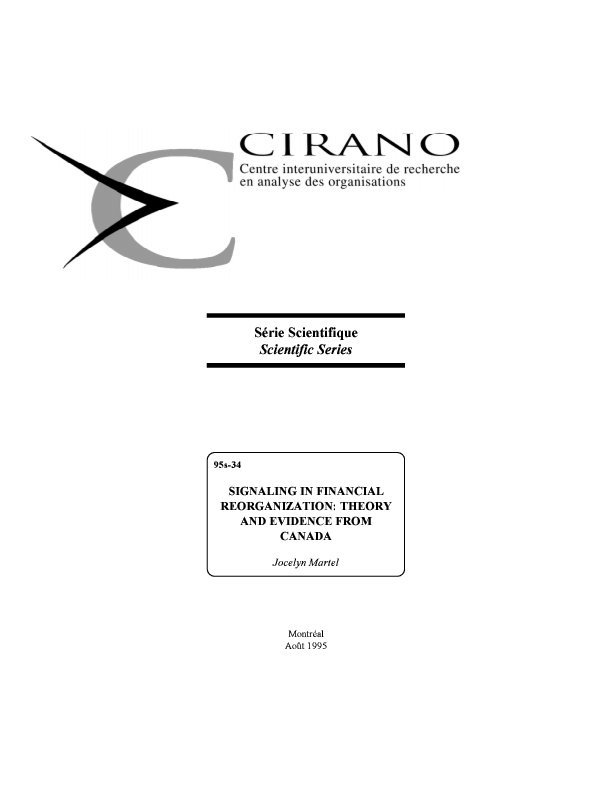Signaling in Financial Reorganization: Theory and Evidence from Canada
This article proposes a signaling model of financial reorganization in which the firms use the provisions of the reorganization proposal, in particular the split between short term cash and deferred payments, to signal their viability to uninformed unsecured creditors. The empirical analysis based on an original data set of 393 Canadian firms in reorganization confirms that the probability of success in reorganization increases with the proportion of short term cash payments (3 to 6 months) to unsecured creditors, when controlling for the fact that firms are cash constrained. Also, the probability of acceptance of a proposal by unsecured creditors increases with the proportion of up-front payments (1 month) and the perceived probability of success of the proposal by unsecured creditors.
[ - ]




